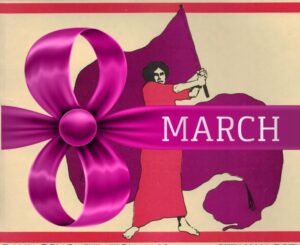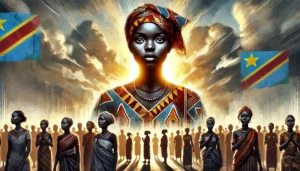Be it in times of war or peace, the threats of gender especially the female gender carries a lot of misunderstanding. This is in fact the sad reality the African continent in general and in Cameroon.
In 2007 for instance, Cameroon hosted a total population of refugees and asylum seekers of approximately 97,400. Of these, 49,300 were from the Central African Republic (many driven west by war), 41,600 from Chad, and 2,900 from Nigeria. Kidnappings of Cameroonian citizens by Central African bandits have increased since 2005.
Between 2014-2016, Cameroon had an estimated 44,000 refugees from Nigeria. Internal Cameroonian refugees also began to leave areas bordering Nigeria to escape Boko Haram violence, especially following the December
The refugee population fleeing from Boko Haram are scattered in very inaccessible localities in the north of Cameroon, and many who refuse to be registered and stay in camps are still at the mercy of the Boko Haram sect.
Amongst the refugee population, women and children represent about 75% and are still the most vulnerable. That’s why there are too many actors from diverse sectors that are carrying out activities that aim to improve lives in the refugee’s camps, especially for women and children. They can have food and shelter even though they are still facing malnutrition because the food stock always runs low, and the need to train women refugees to be self-reliant with sustainable livelihoods in the refugees camps; for instance by training them in small trade and helping them start small income generating activities; that’s what our organization CEFAP- Ladies Circle, amongst others is trying to do on the field. Working with women in the refugee camp especially in the Far North is a delicate operation because we have to brave the most dangerous region in Cameroon (due to attacks by the terrorist group-the Boko Haram) to provide life-saving assistance to those vulnerable women and their children. We don’t only go to the refugee’s camp to provide food. We empower women there economically. We keep on advocating for gender equality, fighting to end violence against women and promoting women’s empowerment. Sharing skills, giving smiles, touching /changing lives are some our daily and passionate work, especially with a focus on the most vulnerable, underprivileged and poor. Now, the situation has improved in the camp as far as human’s rights are concerned. You will for instance hardly have complaints of rights that are violated; women are no more beaten and sexually harassed. Women refugees in the camp can now afford basic needs for themselves through their small income generating activities. They live in peace; cases of violence and child marriage have reduced. There is still a lot to do to ensure women’s empowerment, advance justice and human rights in the refugee camps in Cameroon. We thank all our supporters that keep on helping us to change/sustain lives, empower women in refugee camps and improve the social and economic status of women in Cameroon. We can list here the Collisson Trust Charitable, International Women’s Alliance, Women’s International Networking and the others.
By Anne Pelagie YOTCHOU TENDONG
IAW member in Cameroon



